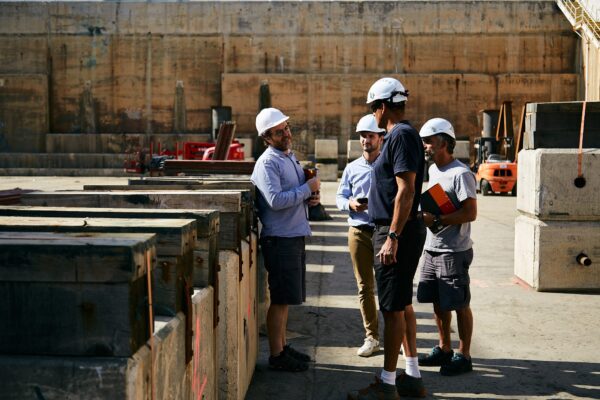

Coming on the back of 2020, a year that posed challenges to everyone, 2021 provided us and the industry the opportunity to move forward with cautious optimism. We recently sat down with HR Directors Aline Amauger and Carmen Sánchez, and Xavier Martinez, Professor at the Barcelona Nautical Faculty, to pick out some of their takes from 2021 and the HR trends they expect to see ahead of us both internally and in the wider industry.
Strength in numbers
2021 saw a record level of recruitment across the MB92 Group. While the focus was on reinforcing our project management team, nearly every department was enhanced across the group to cater to increased demand for service and projected growth for the global yacht market over the next few years, estimated to rise from €57 billion in 2020 to around €75 billion by 2027 (global yacht industry report 2021).
It is quality that counts
The knock-on effect of 2020 saw many projects moved into 2021 but, while this was a factor last year, the increase in average LOAs plus the types of projects being carried out were of equal importance. Larger yachts sometimes require bigger project teams with dedicated individuals for specific project areas. Plus, the high occupancy on the 4,800t shiplift in Barcelona in 2021 meant more technically complex worklists, requiring specific skillsets in our teams.

Is there a flow of talent entering the industry?
The industry is going to need a significant supply of people over the next 10 years to meet demand according to recent projections, but what are we seeing at grass root level? According to the faculty, 2021 saw a marked increase in student numbers enrolling in nautical studies in comparison to 2020 but this is more a result of the pandemic than industry opportunities. However, the feeling is that with greater public confidence, plus factors such as flexible learning methods allowing wider catchment areas for universities, 2022 expects to be an even better year for student numbers.
Apprenticeships are another route into the industry and last year we added 9 to our team in La Ciotat. Working alongside and learning from experienced professionals on the job is such a valuable opportunity to pass on knowledge first-hand and could prove to be an essential source of talent as the industry continues to grow.
Improve onboarding
Positions onboard are another area where significant improvement needs to be made. The trend towards larger yachts requires bigger crews yet the industry is still failing to provide legitimate paths for those pursuing a career in this area rather than the traditional dock walks with cv-in-hand approach. From a refit perspective, having highly trained and professional crew members are such an advantage to the project so it is in all our interest to open doors for talented individuals to a rich and varied career in this industry.

Looking out for one another
Thankfully, we are seeing greater understanding and empathy around the issue of mental health in the industry. The global pandemic has forced us to confront how we approach such a complicated subject and while some of us are pleased to see a shift in work vs home balance, isolation and a lack of human contact has been particularly challenging for others, whether that be onboard or ashore.
Internally, we launched the MB92 Balance Program in 2021, an initiative aimed at firstly offering people a forum and opportunity to share their experiences or how they had been affected by the circumstances around COVID19, and secondly, a series of events such as group yoga by the beach, bike tours outside the city and other excursions that enabled people to safely interact and support mental wellbeing. The hope is that we have permanently moved away from stigmatisation and that we continue learning, so we are better equipped to offer the right support to those around us who may need it.
Industry still has work to do on gender equality
While last year saw the total percentage of women rise to 39% across the group, it is clear that there is still much to do to attract more women into the industry. Initiatives are being implemented such as the commission for equality at the nautical faculty, aimed at encouraging more young women to take up studies in naval areas, but the level of enrolment is still only around 15-20%.
Hello, how can we help you today?
- I want to request a quote
- I want to get in touch with an MB92 Barcelona representative
- I want to get in touch with an MB92 La Ciotat representative
- I want to get in touch with an MB92 Red Sea representative
- I want to know more about MB92 Red Sea
- I want to apply for a job vacancy
- I want to get directions